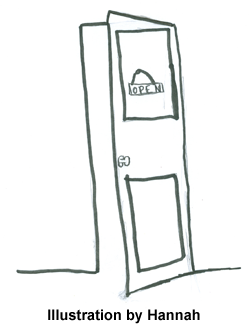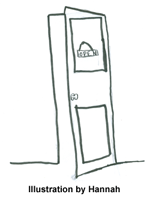 Last week, I started a series of posts on Emotions. Emotions, or feelings as they are also called, are the “bulk” of the Grieving Process. They can be defined as reactions or responses to things that happen in our life; our inner self being expressed.
Last week, I started a series of posts on Emotions. Emotions, or feelings as they are also called, are the “bulk” of the Grieving Process. They can be defined as reactions or responses to things that happen in our life; our inner self being expressed.
We discovered that emotions are God-given, consisting of both positive and negative feelings. They do not have to be explained, justified, or apologized for, however, what you do with those negative feelings could affect you the rest of your life, which brings us to this lesson today.
There are many words to express our negative emotions, however, for the most part, they can be classified into 3 main categories:
ANGER GUILT DEPRESSION
When we experience a loss of any kind, chances are we will experience all three emotions sometime during the Grieving Process. For example:
- Anger works in the present: We are prone to say: “This shouldn’t have happened to me!”
- Guilt works in the past: “If only I had done this, or if only I had done that, this wouldn’t have happened to me!”
- Depression works in the future. “What’s going to happen to me now?”
Though we may experience all 3 emotions during the process of grieving, one will usually dominate over the other two. Why? It probably has become a stronghold in our life. What is meant by a stronghold and how does it develop?
Stronghold Defined: An area of our lives we cannot control, which is destructive.
Robert McGee, author of Search for Significance, says that emotional strongholds develop from beliefs, thoughts, emotions, and actions; ALL of which work together to respond to life’s situations. Look at the chart below to see how this works.
Situations
Beliefs > Thoughts > Emotions > Actions > Stronghold
- Situations are the real events or experiences that occur in our lives.
- Beliefs are ideas that we perceive as true in our mind. Many of these beliefs are
true, such as “America is the land of opportunity.” Many beliefs are not true; they
are lies we believe in our mind. such as: My boss snubbed me. I believe that he thinks he is
above me, so I quit my job. I believe that I failed and will always have to live in shame. - Thoughts are ideas in our minds that have been shaped by our beliefs. They stimulate
our emotions. - Emotions are the feelings we have, based on what we believe about a situation. We
often think that it is the situation that triggers our emotions. But this is not true. It is our
belief about the situation that affects our emotions. Our emotions then launch our actions. - Actions are the things we do based on how we feel about a situation. We have a
choice as to what to do with how we feel about a situation: ignore the message, act
on it, or do the opposite. An un-renewed mind, according to the Word of God, will cause
us to act upon the negative emotion. - Stronghold As the same negative emotion and the subsequent action is repeated, we have
opened the door to a stronghold, an area of our life that is out of control, and is destructive.
In essence we have opened the door to sin in our lives.
The Bible introduces us to the open door principle of strongholds in the story of Cain and Abel in Genesis 4:3-7.
At harvest time, Cain brought the Lord a gift of his farm produce, and Abel brought the fatty cuts of meat from his best calves. The Lord accepted Abel’s offering, but not Cain’s. This situation made Cain dejected and very angry.
God said to Cain: “Why are you so angry? Why is your face so dark with rage? It can be bright with joy if you will do what you should. But if you refuse to obey, watch out. Sin is waiting to attack you, longing to destroy you. But you can conquer it.” (Living Bible)

What God was literally saying to Cain was that Satan was crouched at his doorway, waiting to leap into his life. He told Cain that he had the choice to close that open door and not let Satan destroy him.
Unfortunately, Cain did not close the door to anger and murdered his brother, Abel. (verse 8) God then said to Cain: “You are hereby banished from this ground which you have defiled with your brother’s blood. No longer will it yield crops for you, even if you toil on it forever.” (verse 11-12)
Just as Cain could no longer produce crops on the soil God had given him, when we are out of control with feelings of anger, guilt, or depression we, too, cannot produce a harvest for the Kingdom of God, the very purpose for which we were created.
My friends, I know what it is like to be out of control and at the point of destruction with negative feelings of Guilt.
Perhaps you are not quite sure what your most common negative response is in your life. Today, I would like to give you tests that have been devised by prominent Christian psychologists and authors in the field of emotional development. I have given these tests for many years to classes I teach on Grieving. I find them to be valid.
Why not take the time to take the tests on anger, guilt, and depression to identify your most common emotional response. Click the green ‘Print Friendly’ button at the top of this post to print a copy of the test. Check only those items that apply to you. Summarize your findings of all three tests at the end.
ANGER: Anger can be classified into three different categories: suppressed, open
aggression, and passive anger.
I. Suppressed Anger: Holding anger inside
- I am very image conscious. I don’t like to let others know my problems.
- Even when I feel flustered, I portray myself publicly as having it all together.
- I am rather reserved about sharing my problems or frustrations.
- If a family member or friend upsets me, I let days pass without mentioning it.
- I have a tendency to be depressed and moody.
- Resentful thinking is common for me, although people would never suspect it.
- I have suffered with physical complaints: headaches, stomach pain, sleep irregularity.
- There are times when I wonder if my opinions or preferences are really valid.
- Sometimes I feel paralyzed when confronted by an unwanted situation.
- I’m not inclined to initiate conversations about sensitive or troublesome topics.
II. Open Aggression: A stand for personal worth, needs, and convictions at someone else’s expense. This type of anger does not hide. Includes explosiveness, rage, intimidation, blame, bickering, criticism.
- I can be blunt and forceful when someone does something to frustrate me.
- As I speak by convictions, my voice becomes increasingly louder.
- When someone confronts me about a problem, I am likely to offer a rebuttal.
- No one has to guess by opinion; I’m known for having unwavering viewpoints.
- When something goes wrong, I focus so sharply on fixing the problem that I overlook others’ feelings.
- I have a history of getting caught in bickering matches with family members.
- During verbal disagreements, I tend to repeat myself several times.
- I find it hard to keep my thoughts to myself when it is obvious that someone else is wrong.
- I have a reputation for being strong willed.
- I tend to give advice, even when others have not asked for it.
III. Passive Aggression: These people recognizes that open aggression creates and atmosphere of great disrespect, so they refuse to explode loudly or get caught in games of verbal abuse. Resist ugly anger. Accomplishes goal in quieter ways.
- When I am frustrated, I become silent, knowing it bothers others.
- I am prone to sulk and pout.
- When I don’t want to do a project, I will procrastinate. I can be lazy.
- When someone asks if I am frustrated, I say, “No, everything is just fine.”
- There are times when I am deliberately evasive so others won’t bother me.
- I sometimes approach work projects halfheartedly.
- When someone talks to me about my problems, I stare straight ahead, obstinate.
- I complain about people behind their backs, but resist the opportunity to be open with them face to face.
- Sometimes I become involved in behind-the-scenes misbehavior.
- I sometimes refuse to do someone a favor, knowing this will irritate him/her.
Guilt: The feeling of GUILT causes many to respond to it like a whipped puppy, beaten down, and shame. It brings about a feeling of condemnation.
- I am unworthy.
- I fear what others think of me.
- I should have done this, I shouldn’t have done that—I blew it!
- I can’t face that person again.
- I’m just no good.
- I feel bad if I say “no” to others who ask favors of me.
Depression: Depression is a sad, hollow feeling. Spirituality does not make you depression-
proof. (This type of depression is a result of a loss; not chemical imbalance.)
- I feel like crying more often now than I did a year ago.
- I feel blue and sad.
- I feel hopeless and helpless a good part of the time.
- I have lost a lot of my motivation.
- I have lost interest in things I once enjoyed.
- I have had thoughts recently that life is just not worth living.
- My sleep has changed of late. I either sleep too much or too little.
- I am losing my appetite.
- I am too irritable.
- I am anxious of late.
- Morning is the worst part of the day.
- I do not function as well at my job as I did in the past.
Summarize your results by placing the number you checked in each category.
Anger
Suppressed Anger _____
Open Aggression _____
Passive Aggression _____
Guilt _____
Depression _____
Questions:
- What was your most common emotional response? If you checked at least half in a category, you possibly are experiencing a stronghold in that area.
- Would you say that this is the same emotional response that you have used over an extended part of your life no matter what the situation may be?
- Do you see that a pattern has developed in your response, no matter what the situation may be?
I would be interested in knowing the results of your test, so please leave me a comment and tell me what it was. Remember your emotions do not have to be explained, justified, or apologized for; it is what we do with them that involves wrong.
Join Hannah and me next week as we start on an exciting adventure to discover “when” the door was left open for that negative emotion to enter your life.
Test References:
Anger: The Anger Workbook by Drs. Les Carter and Frank Minirth
Guilt: Search for Significance by Robert S. McGee
Depression: Happiness is a Choice by Drs. Frank Minirth and Paul Meier










Pingback: Identifying the Root Causes of Emotional Responses | Martha's Blog